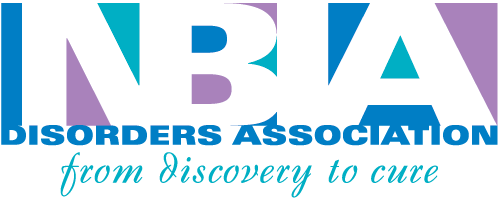Current call for MPAN funding reflects clearly defined priorities




Hoffnungsbaum e.V. is cooperating with three sister organizations in a current call for funding of up to USD 145,000 for one two-year or two one-year MPAN research projects: https://www.hoffnungsbaum.de/call-for-proposals-on-mpan-research-2022/
The joint campaign is financially supported by our German NBIA patient organization Hoffnungsbaum e.V. as well as AISNAF (Italy), NBIA Disorders Association (USA) and Stichting Ijzersterk (Netherlands). We invite researchers to submit their proposals to study Mitochondrial Membrane Protein-Associated Neurodegeneration (MPAN), with the aim of awarding funding by summer 2022.
The announcement of MPAN project funding is the result of a coordinated process to identify research priorities for this not-so-rare NBIA variant, which accounts for approximately 5% - 10% of all NBIA disorders. MPAN, caused by mutations in the C19orf12 gene, is characterized by gait changes followed by progressive spastic paralysis, dystonia, neuropathic disorders, problems with speech and swallowing, optic nerve degeneration, neuropsychiatric abnormalities and progressive cognitive impairment.
Analysis of the MPAN research landscape to determine a targeted research strategy
Discovered in 2011, the function and role of this gene in the disease process are still largely unknown, although MPAN has been investigated in several research projects funded by the NBIA patient organizations in the USA, Switzerland, Poland and Germany, among others. The MPAN project, which has been Hoffnungsbaum e.V. funded MPAN project is still ongoing and will hopefully be able to solve some of the open questions soon. But it will not be enough. Further projects are urgently needed to help MPAN research, which has so far been rather rudimentary and underfunded, achieve a breakthrough in effective treatments.
After not receiving any viable project proposals for MPAN in the 2018 and 2019 calls for proposals Hoffnungsbaum e.V.AISNAF and the NBIA Disorders Association saw the need for a comprehensive analysis of the global MPAN research landscape to date as a starting point for new projects. We commissioned Science Compass, led by Dr. Francesca Sofia, to conduct this research analysis.
This included a thorough review of the scientific literature on MPAN, NBIA and related disorders, as well as information on publicly available institutional websites and databases. Several researchers with many years of experience in the field of NBIA diseases then gave their assessments of MPAN research in interviews between June and July 2020. The resulting document served as the basis for discussions that took place during a two-day virtual expert workshop in October 2020 to design a joint strategy to close the knowledge gaps that hinder the development of effective treatments for MPAN.
Workshop defines MPAN research priorities
The workshop participants, including basic researchers and clinicians as well as accompanying representatives of patient organizations, identified and prioritized two main goals for MPAN research in particular, with the aim of developing new MPAN-specific therapies.
- The first priority is to support basic research for new, groundbreaking findings on the C19orf12 gene, its disease-causing mutations and the associated protein.
- The second priority is the development of new model organisms or the in-depth investigation of existing models in order to better understand the characteristics of the disease. Both animal models and human cell models, e.g. obtained from patients' skin cells, are being considered. It is also important to determine the specific cell types that are affected by gene mutations.
Basic research is the key to gaining new insights into the molecular and cellular functions of C19ORF12, which can then lead to new therapeutic interventions for MPAN that address the root causes, which do not yet exist.
Theoretically, gene therapy is promising, but at this stage it is only a concept, as essential basic science information on MPAN is lacking. Further research could reveal the benefits of other drugs, including those already in use for other diseases.
Overall, the consensus on the research strategy emphasizes the need for translational research that brings scientists, clinicians and patients together and translates basic research into practical applications for patients more quickly, a priority identified in the strategic planning process.
We patient organizations are confident that knowledge about MPAN will grow and that there will be help for MPAN families who have been waiting for years for a breakthrough in research and possible treatments.
